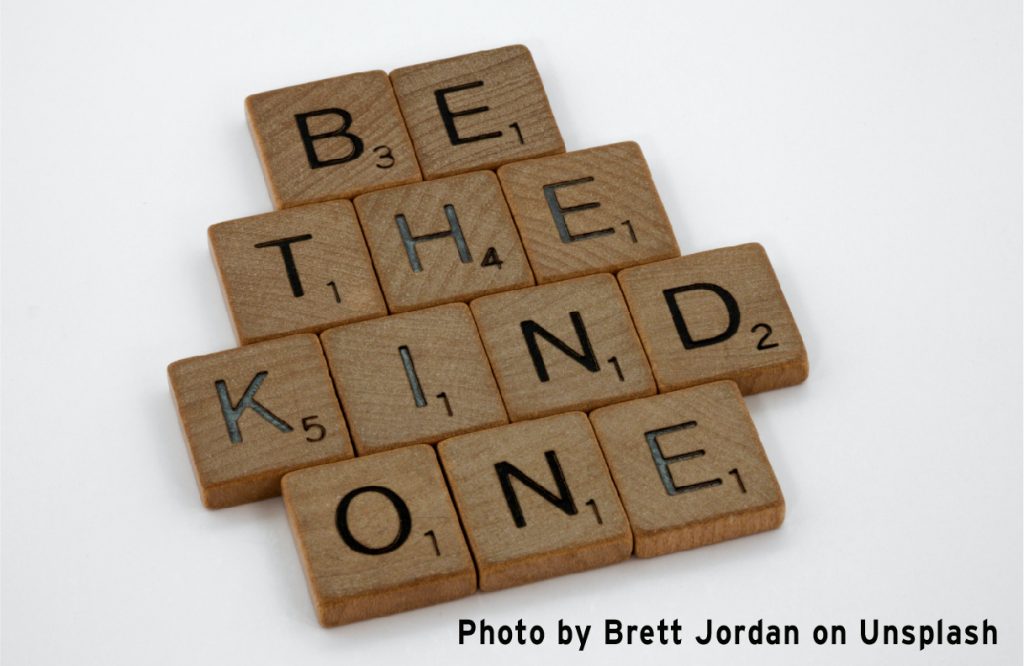Cultivating Kindness

Whenever we experience challenges as a family, community, or country, we often see an outpouring of kindness–much like what we saw in action during the 2020 pandemic. Reaching out to aid and support is not only beneficial for the person in need but even more impactful for the individuals providing assistance. The instinct to be kind starts at a very young age, and if cultivated properly lasts into adulthood—creating a stronger and more peaceful future for our children.
Ways to cultivate kindness in your kids:
Start coaching kindness when they are young. Children embrace helping when they are as young as toddlers and preschoolers. Most kids love to help—be it a simple task like picking up toys or more complex jobs like setting a table or cleaning a surface. Let them help—and praise them when they do so. Walk the line between teaching and letting them do it their way. Develop their instinct to help and you will see an increase in confidence and self-esteem.
Lead by example. It’s common knowledge that children are little sponges. Make no mistake—they’re watching and listening to adults. Be sure that you are practicing kindness and asking your kids to participate with you. Say please and thank-you, open doors for others, ask a senior if they need assistance, pick up litter, write thank-you notes, and include the kids when you volunteer. The monkey-see, monkey-do approach is very effective.
Adjust helping to their age and abilities. If your child is a toddler, keep it simple— and work your way to more detailed tasks. Begin by asking them to pick up their toys and go from there. An eager 3-5-year-old preschooler can set the table, sort objects, and clean up before and after a meal. 6-9-year-olds can assist with food prep and other household chores like more detailed cleaning and organizing. Ages 10 and above can help prepare meals with less supervision and do more physical jobs like lawn care, taking out the garbage, or cleaning a garage.
Don’t ever let your children equate helping or doing chores with punishment. Negativity surrounding the chore will stay with them if they receive ultimatums or threats to take away a privilege. If you do give them a treat or favorite activity for a job well-done, be sure to make it an unexpected surprise, and don’t forget to follow through—failure to do so erodes trust. In addition, express your gratitude before, during, and after your kids assist you. Provide praise and encouragement along the way—and try your best to make it fun. Mary Poppins had it right—figure out a way to add that spoonful of sugar to mundane household activities and your kids will embrace helping.
Teach children that helping doesn’t always mean they will receive a payment or reward. That single senior living down the street will truly appreciate the help your older child offers. Physically taxing projects like raking and mowing the lawn or clearing snow from sidewalks could be very beneficial for them as they may experience high anxiety about physical tasks. Extending this type of kindness will go a long way in keeping elderly friends and family members healthy, happy, and worry-free.
True kindness expects nothing in return and originates from the heart. It’s been said that fulfillment comes when you do something for someone who can never repay you. Mission work, providing food shelf donations, supporting homeless shelters, and mentoring those who need strong role models are character-building opportunities for adults and children alike. You may set out to help another person but find yourself even more enriched by the experience.
We hope you and your families enjoy a wonderful holiday and continue to visit Kids Quest and Cyber Quest for entertainment throughout the festive season. We look forward to seeing you and your kind kiddos soon!